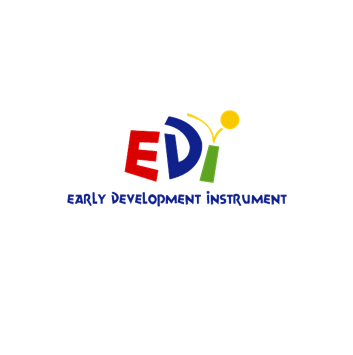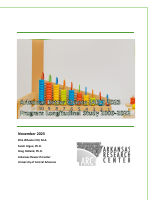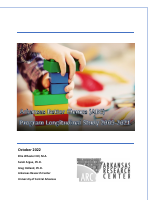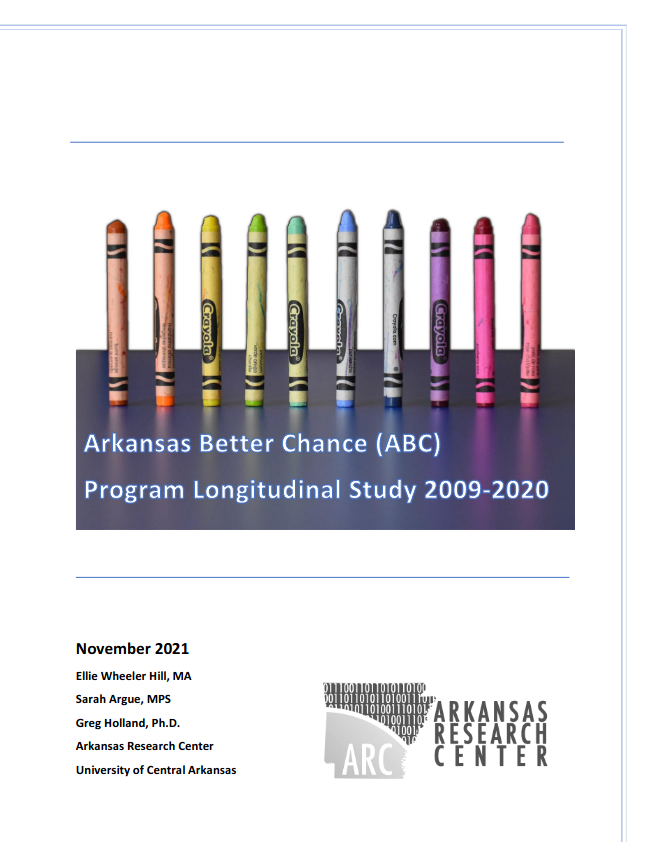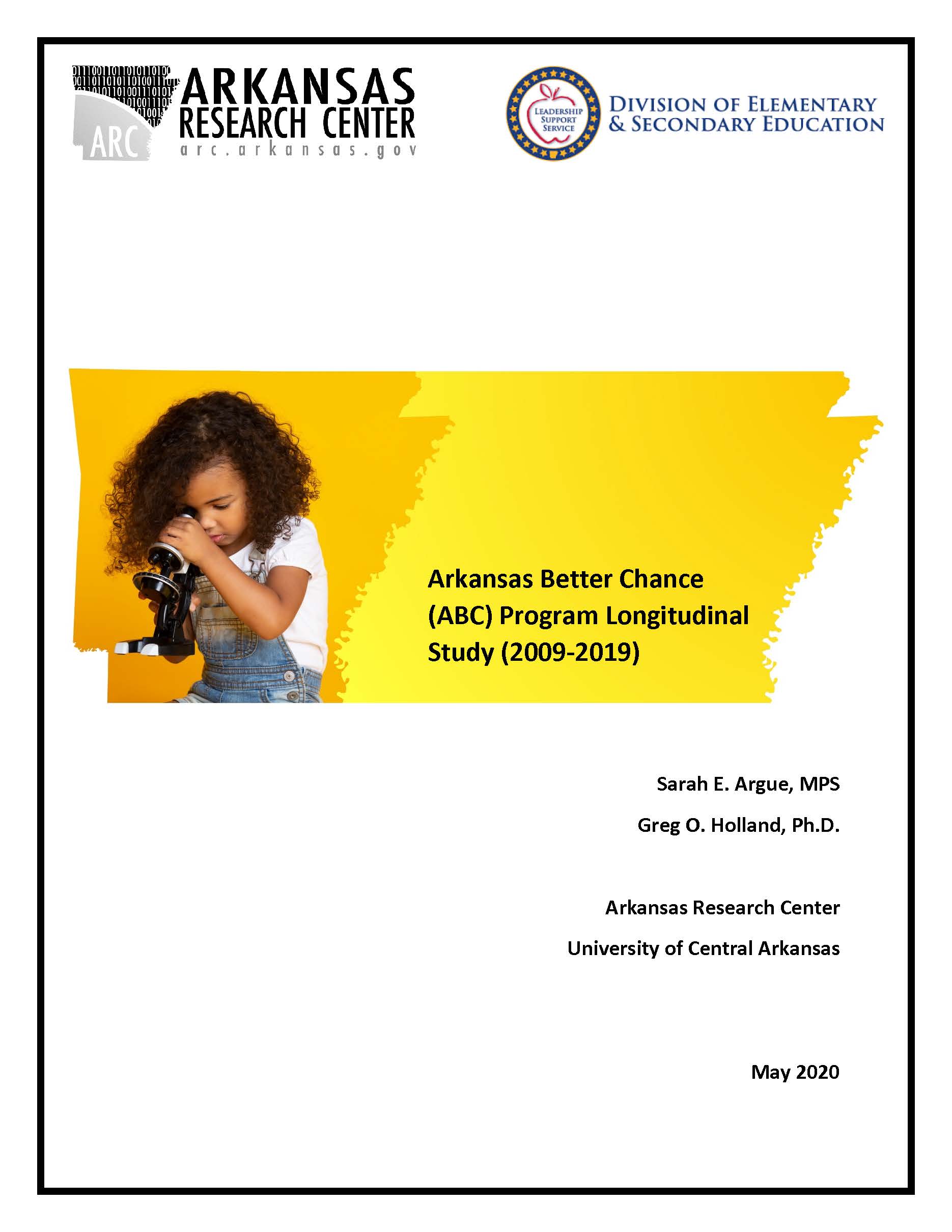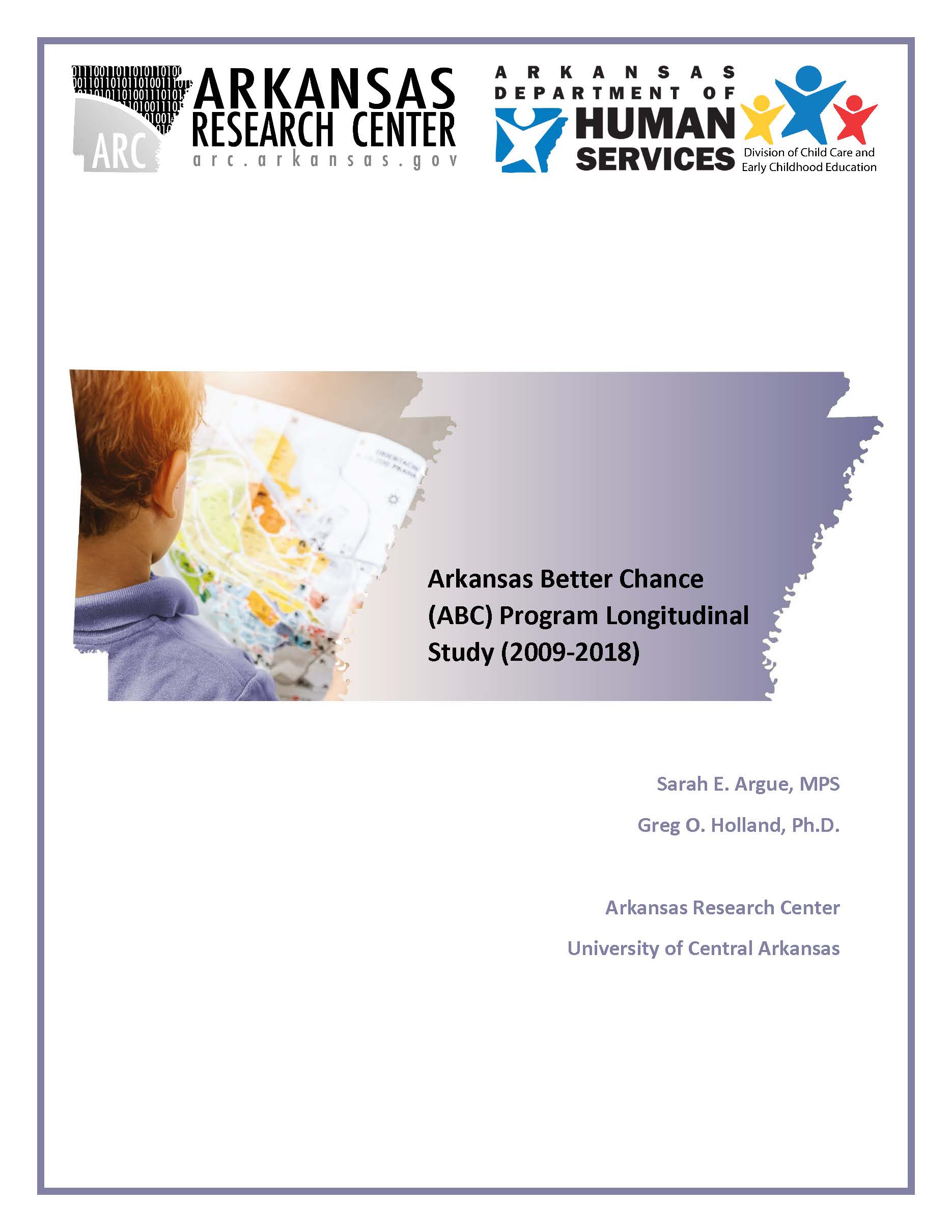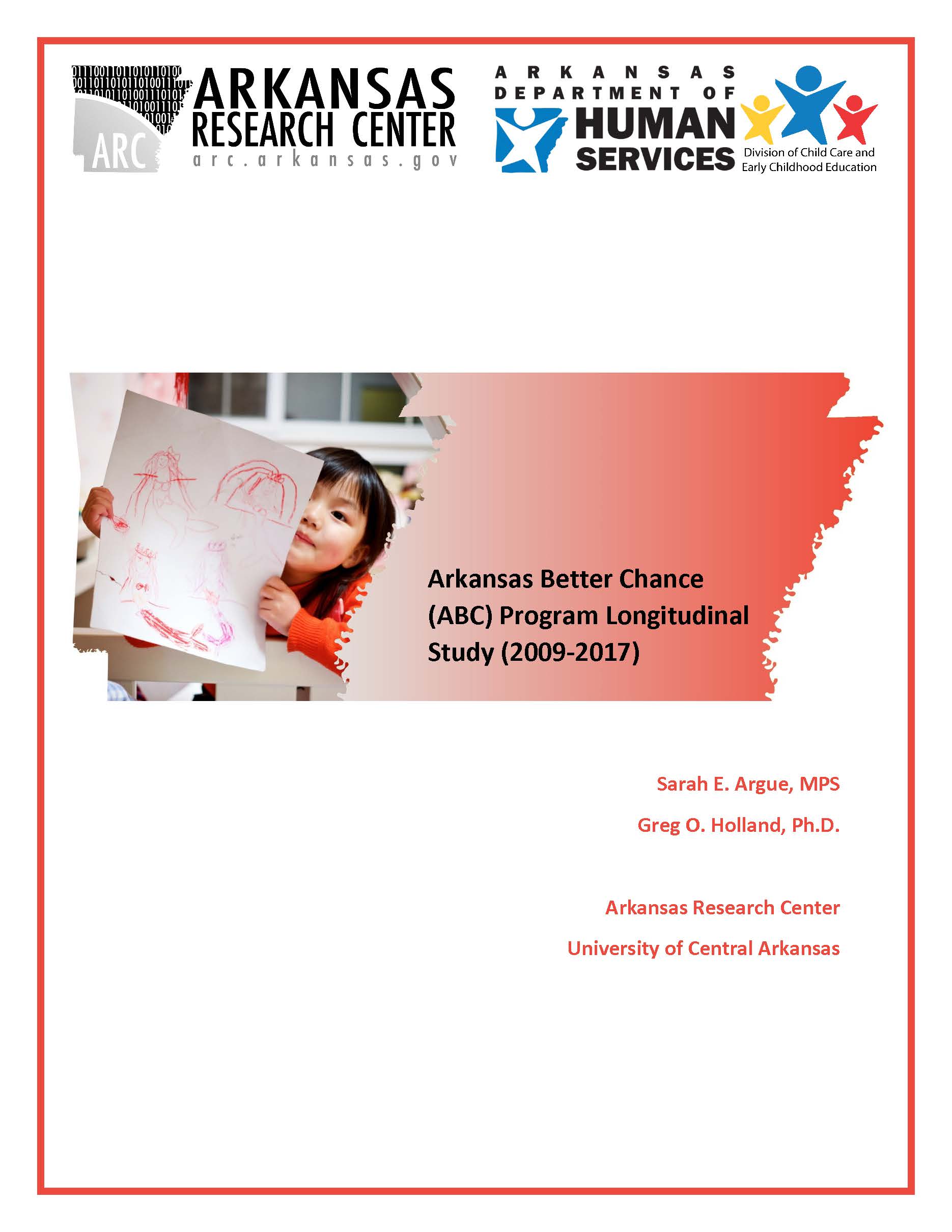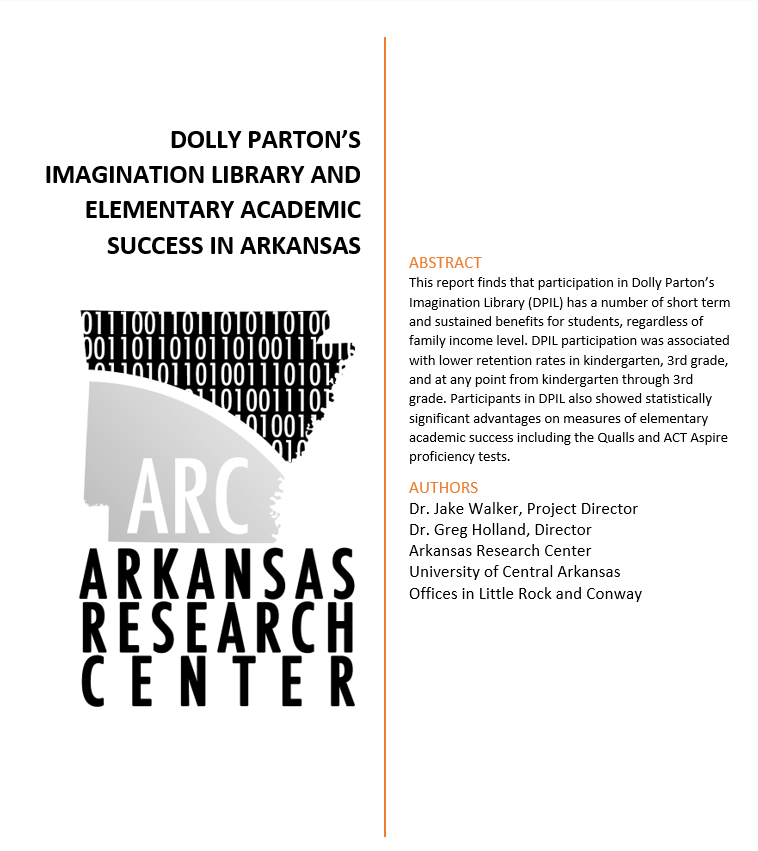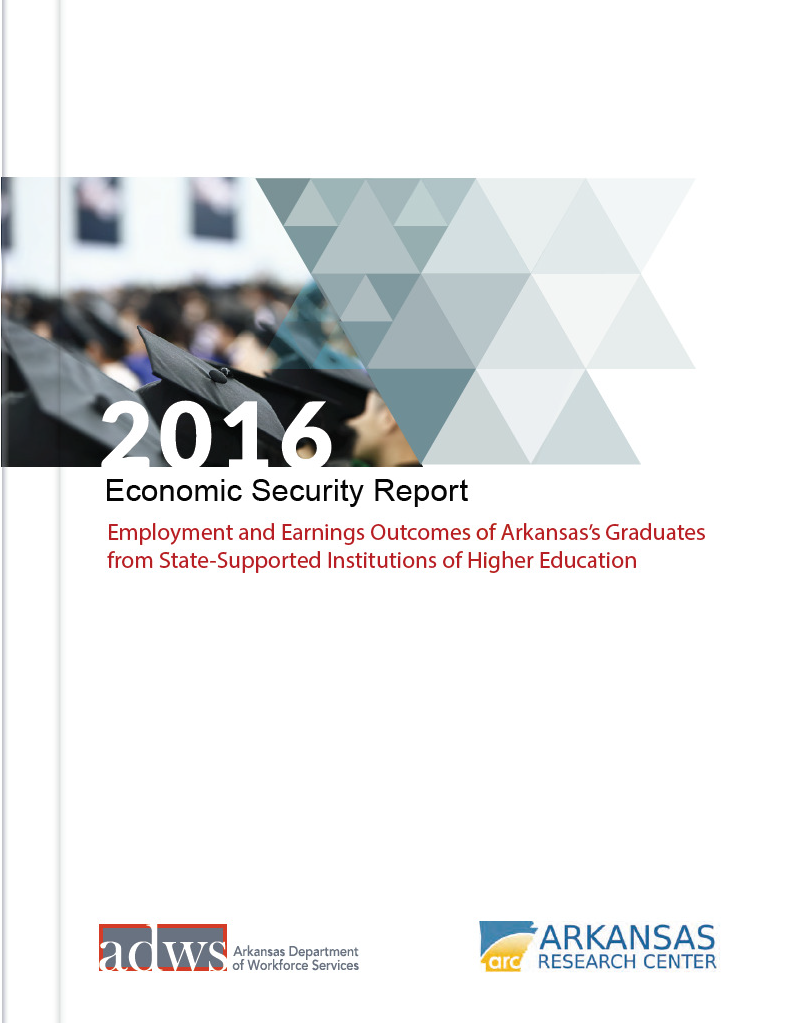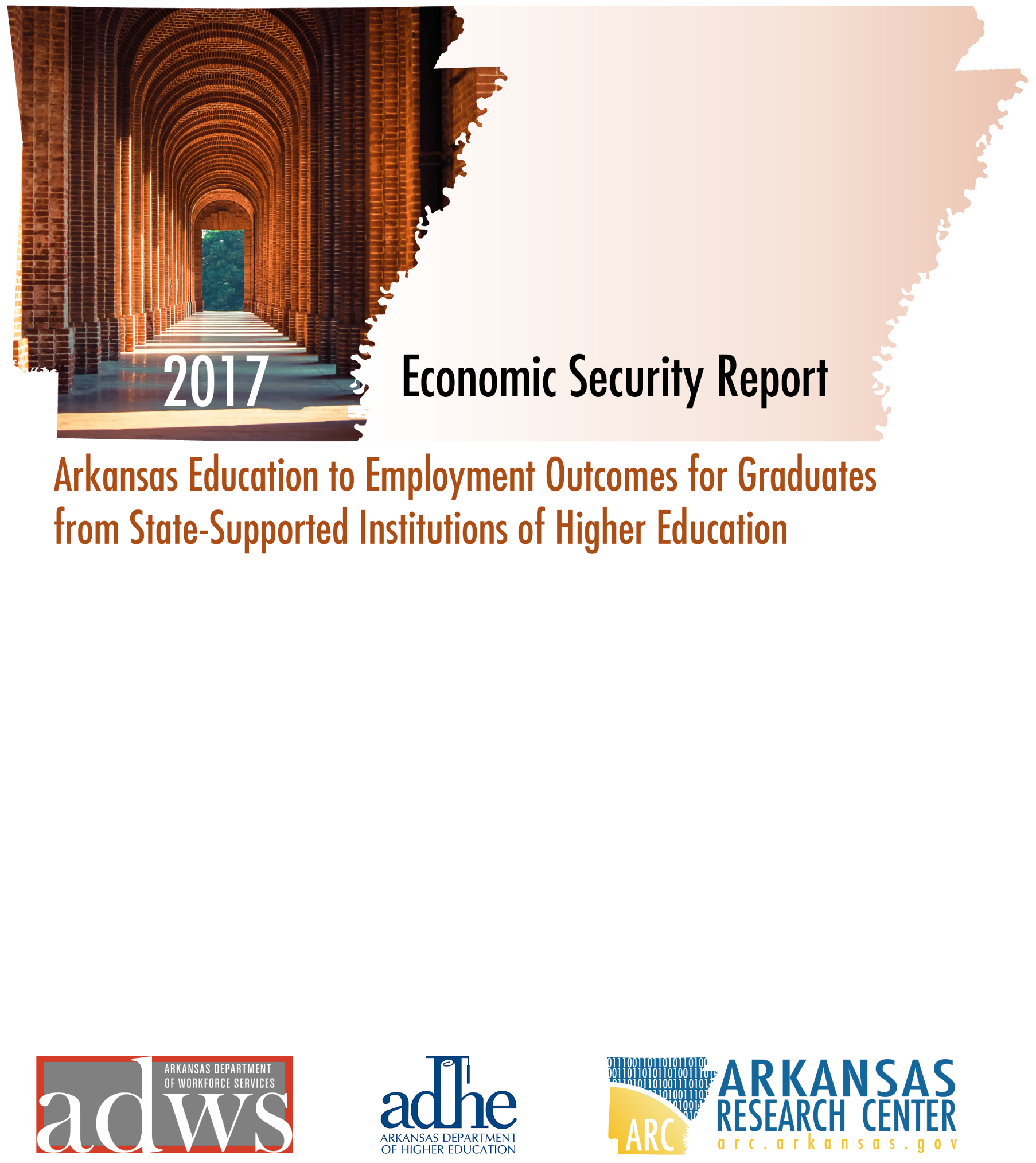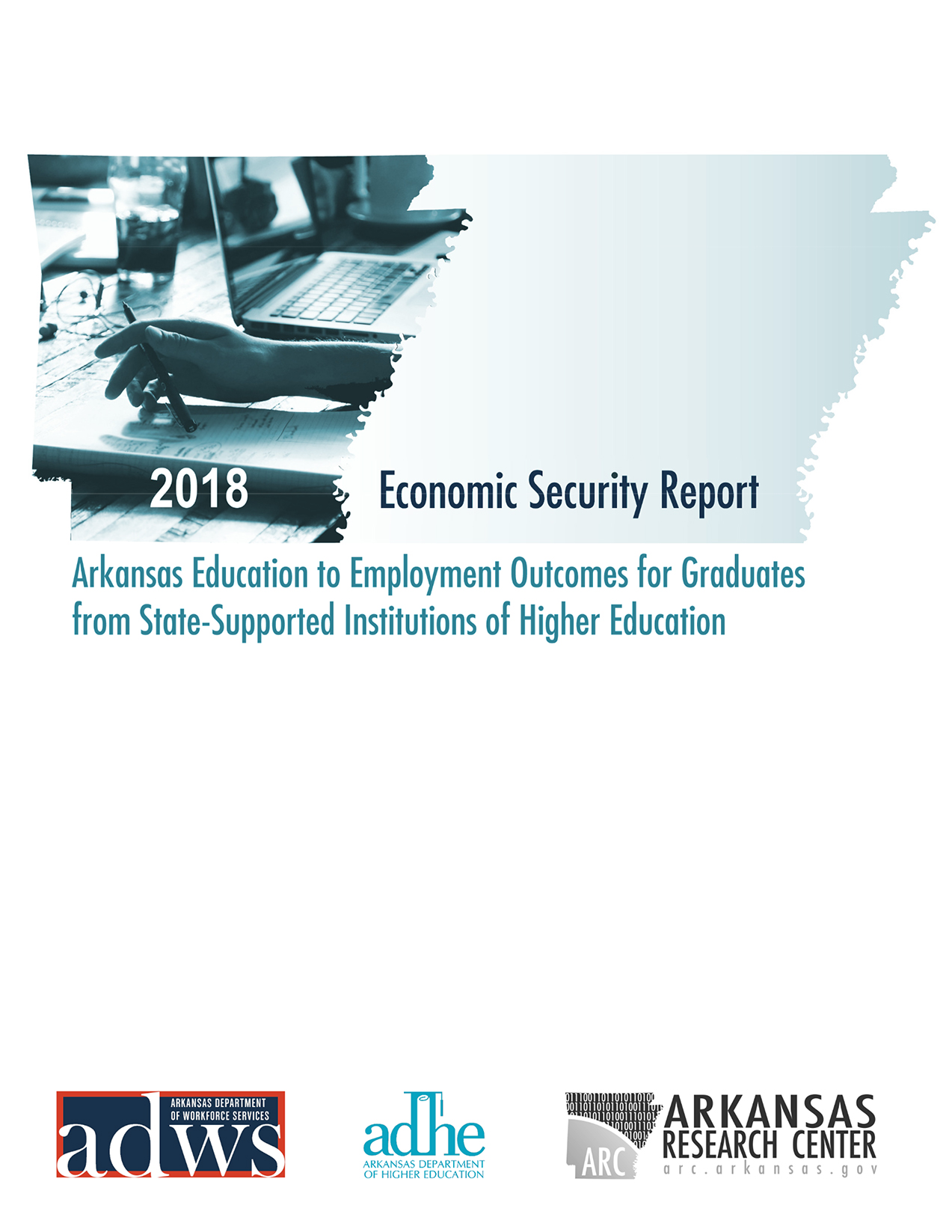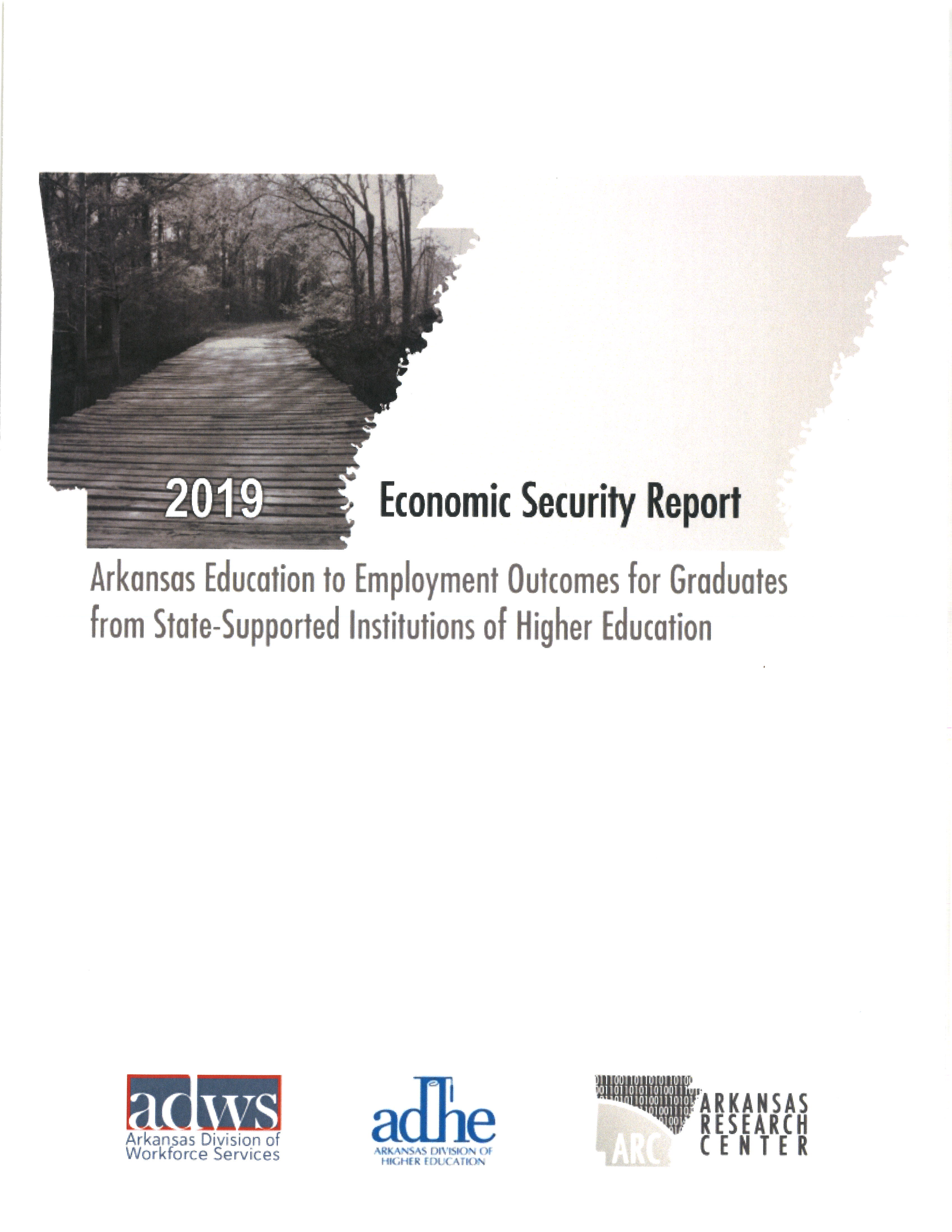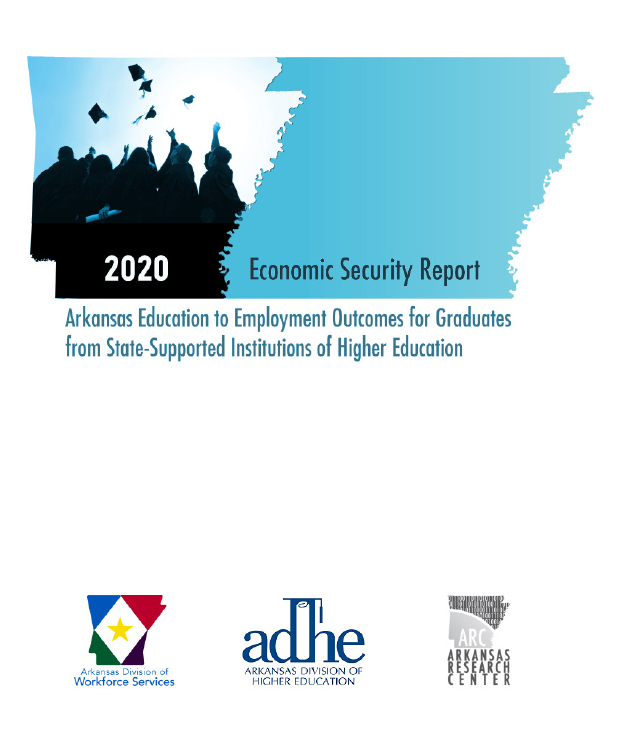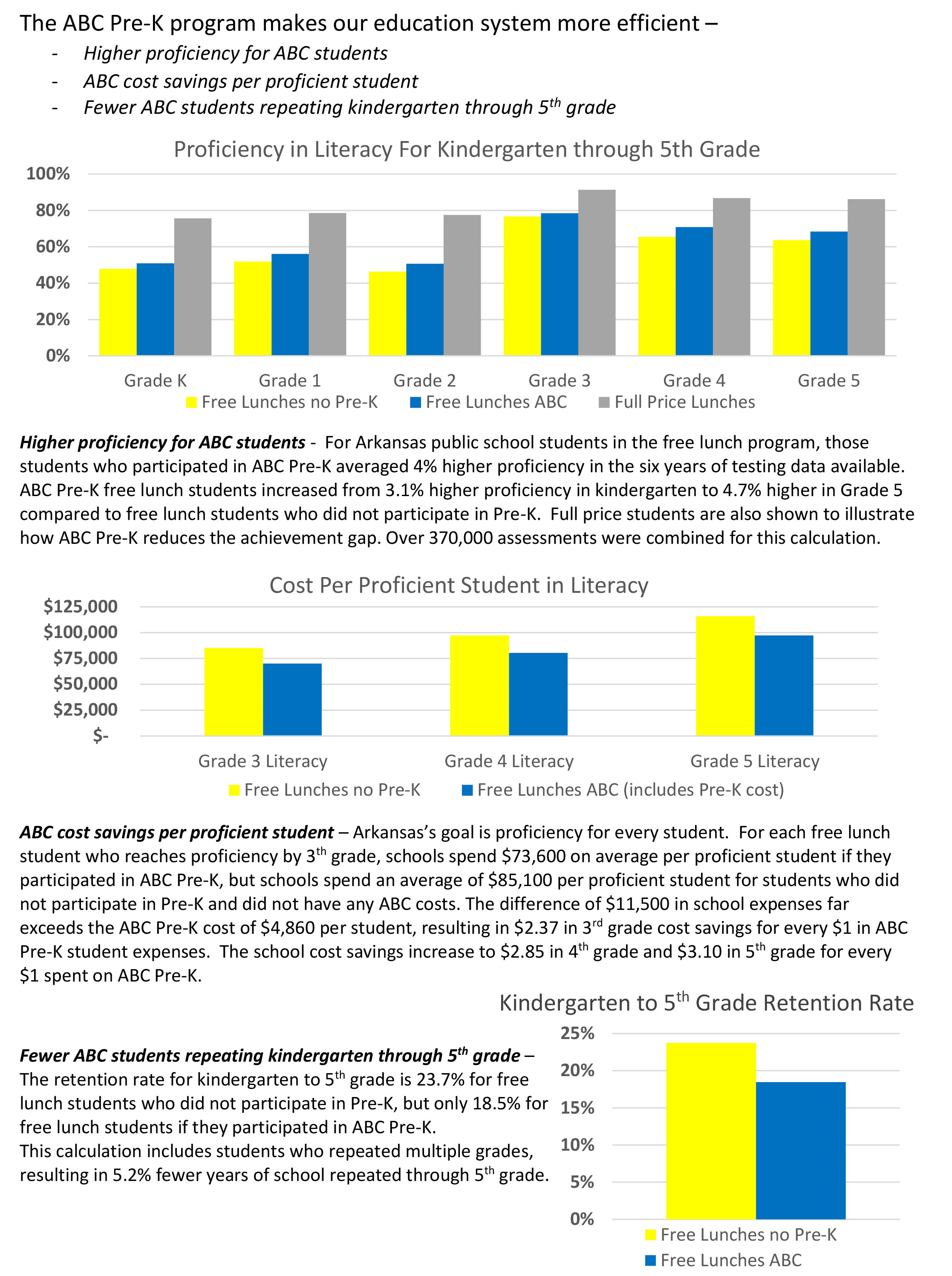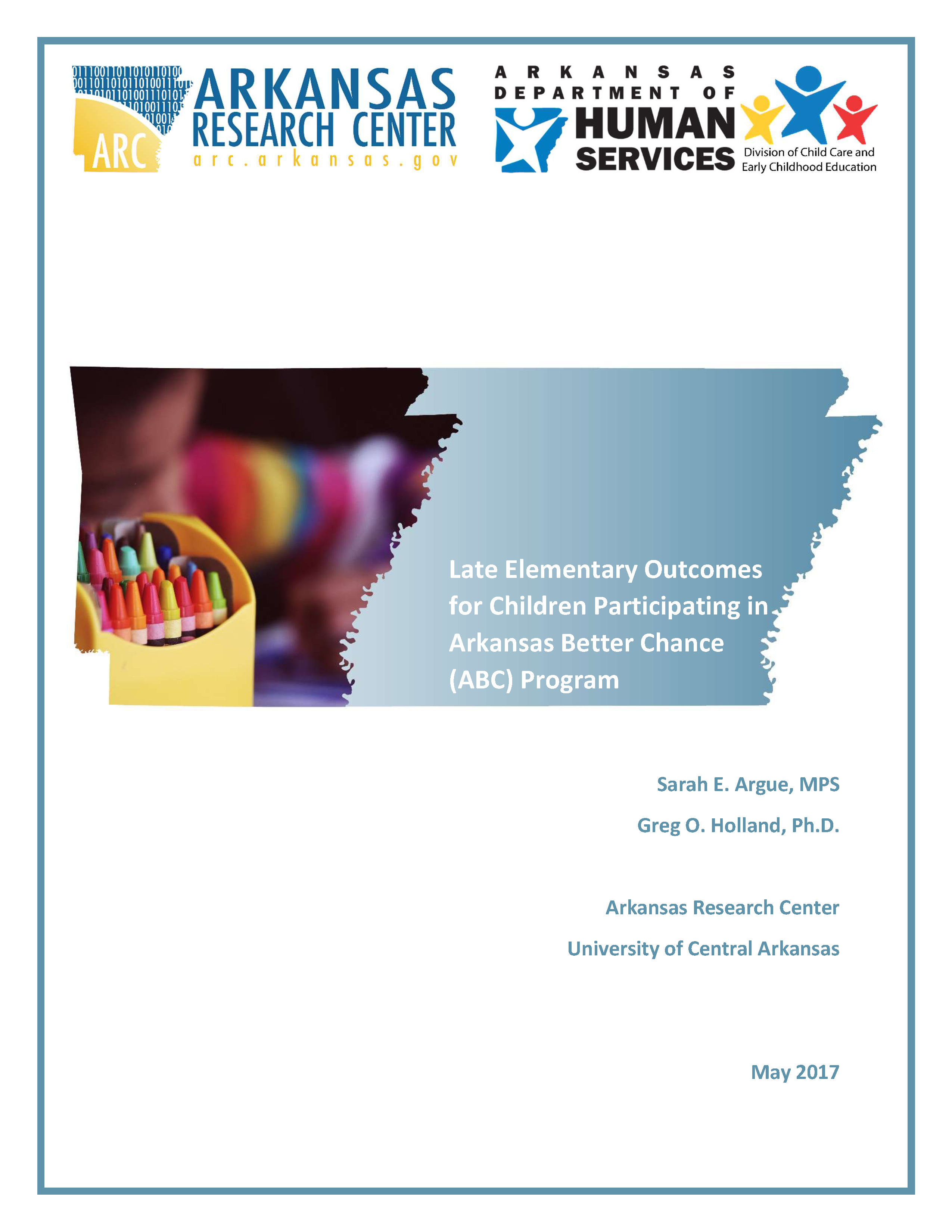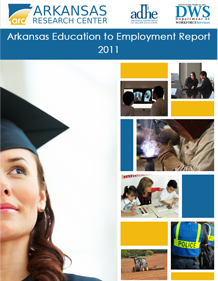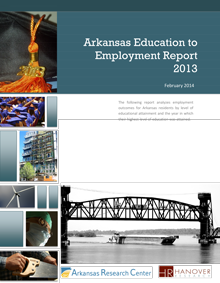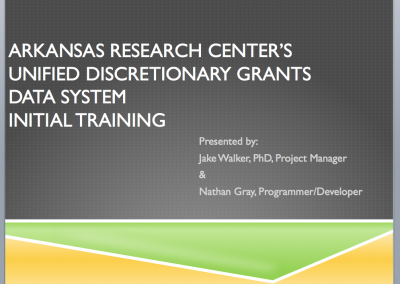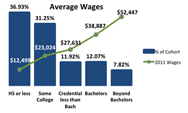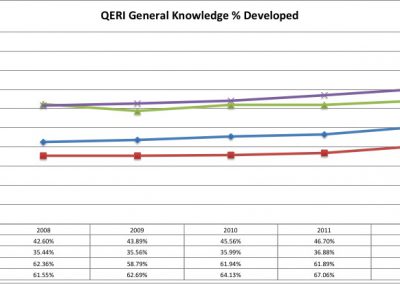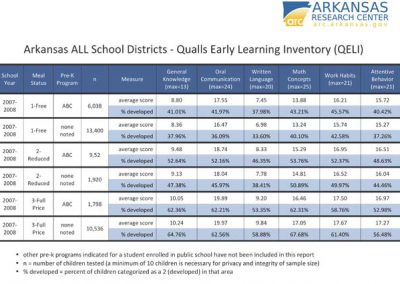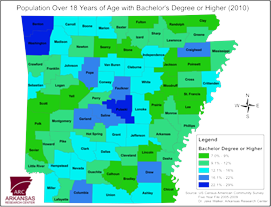ARC Research
Early Development Instrument
The Early Development Instrument (EDI) assesses how kindergarteners are progressing across five domains (physical health, emotional maturity, social competence, language and cognitive skills, and communications skills and general knowledge). It is a population-based measure that gives a holistic, not just cognitive, view of early child-development in a community. With funding from DCCECE, Arkansas Research Center (ARC) is leading the effort to expand the EDI to all counties in the state while continuing to engage and collaborate with local stakeholders. ARC is in Year Two (2024) of the multiyear efforts to roll out EDI to all school districts in Arkansas.
Arkansas Better Chance (ABC) Program Longitudinal Study
This report demonstrates the effects of the Arkansas Better Chance program (ABC) on late elementary and middle school outcomes. End of year assessments, which varied over the course of the study years, were examined for students of three preschool cohorts. Students included in the statewide study received free lunch all years and were enrolled in Arkansas public schools for all years associated with their testing data. Students included in the district level study received free lunch in Kindergarten and were enrolled in an Arkansas public school at the time of testing. We found that the Arkansas Better Chance program has statistically significant and meaningful impacts on children’s late elementary assessment outcomes.
Dolly Parton’s Imagination Library and Elementary Academic Success in Arkansas
Dolly Parton’s Imagination Library (DPIL) has a number of short term and sustained benefits for students, regardless of family income level. DPIL participation was associated with lower retention rates in kindergarten, 3rd grade, and at any point from kindergarten through 3rd grade. Participants in DPIL also showed statistically significant advantages on measures of elementary academic success including the Qualls and ACT Aspire proficiency tests.
Economic Security Report
As specified in Arkansas Act 852 of 2015, information detailing the areas of study for each certificate and degree at each state-supported institution in Arkansas is also included in the Economic Security Report. Students who were still enrolled in higher education after their graduation were excluded from the full-time employment calculations.
The Arkansas wages data used for this report do not include employment outside of Arkansas, federal or military jobs, or any employed Arkansans who are not reported to Arkansas unemployment insurance.
Beginning in 2021, the Economic Security Report is authored by the ARDATA Team, and no longer a product of the Arkansas Research Center.
Arkansas Better Chance (ABC) Return On Investment (ROI) Analysis
The ABC Pre-K program makes our education system more efficient
- Higher proficiency for ABC students
- ABC cost savings per proficient student
- Fewer ABC students repeating kindergarten through 5th grade
Quick Looks at Arkansas Student Performance
Historical data visualizations for educational outcomes, designed and developed at ARC prior to current dashboards and reports in use by state agencies.
Late Elementary Outcomes for Children Participating in ABC Program
This report demonstrates the effects of the Arkansas Better Chance program (ABC) on late elementary outcomes (third through sixth grades). End of year assessments, which varied over the course of the study years, were examined for students of three preschool cohorts. Students included in the statewide study received free lunch all years and were enrolled in Arkansas public schools for all years associated with their testing data. Students included in the district level study received free lunch in Kindergarten and were enrolled in an Arkansas public school at the time of testing. We found that the Arkansas Better Chance program has statistically significant and meaningful impacts on children’s late elementary assessment outcomes.
Arkansas Education to Employment
The Arkansas Education to Employment Report for 2013 analyzes employment outcomes for Arkansas residents by level of educational attainment and the year in which their highest level of education was attained.
Unified Discretionary Grants System (UDGS) Training
A presentation that covers entering data into and using ARC’s UDGS system for the Arkansas Partnership for Nursing’s Future (APNF) grant.
The Arkansas Workforce 2013
In Arkansas, there is a strong relationship between education achievement and average wages. Surprisingly, this relationship exists whether or not one actually attained a degree or certificate that one was working toward. Those with some college hours made more than those without any college education, and those with more college hours had higher average wages than those with fewer hours. While there is also a bump in wages associated with a degree or certificate, participation in higher education is associated with higher wages, even without the degree or certificate. The same hold true for those with a high school education or less. Those who left high school as a senior make more than those who left as a junior.
ABC Shrinks Gap in Kindergarten Readiness for Economically Disadvantaged Students
One of the most persistent challenges for education is the achievement gap between sub-groups of children. When comparing test scores for children living in different socio-economic situations, those children living in more affluent circumstances consistently score better than children living in poverty. The Arkansas Commission on Closing the Achievement Gap and Act 33 of the General Assembly’s Second Extraordinary Session of 2003 identifies narrowing the achievement gap among economically disadvantaged students as one of its priorities (Report of the Arkansas GAP Commission 2006). Additionally, the federal Equity and Excellence Commission has been charged with studying the disparities that lead to the achievement gap and ways in which federal policies can address such disparities. Its report was released in February 2013 and asserts that “[u]niversal access to high-quality early learning programs must be a matter of the highest national priority, with a special priority for children in our poorest communities.” The Arkansas Better Chance early childhood education program reduces the kindergarten readiness gap between students from different economic circumstances.
ABC/ Qualls Early Learning Inventory Outcomes
All students entering public school in Arkansas take the Qualls Early Learning Inventory (QELI), a questionnaire based on teacher observations to identify student development in six areas: general knowledge, oral communication, written language, math concepts, work habits, and attentive behavior. In the 2011-2012 school year, almost 10% more students receiving free lunch were scored ‘developed’ when entering kindergarten after participating in an ABC program than students who had noknown pre-school. This report includes students entering public school kindergarten that have been identified as participating in an ABC program prior to enrollment. The comparison group are students entering kindergarten, not found in the ABC data, whose parents have also not indicated any other pre-school program (ie Head Start, private pre-school, etc.) when enrolling them for kindergarten. For any group to be included, at least ten students must have participated. The three sections of the report include aggregated data for all students entering kindergarten in Arkansas from 2008 through 2012; data disaggregated by the school district in which the student enrolled; and finally data disaggregated by the ABC agency the student attended.
2010 Distribution of Arkansas Population Over 18 with Various Levels of Education
These maps show the distribution of adults in Arkansas with various levels of educational attainment.
Dual Database Architecture
The Arkansas Research Center uses a Dual Database Architecture which incorporates rigorous protocols for the protection of individual privacy and confidentiality. All data received from agencies is processed through a system that splits the file into two parts, personal and non-personal information. The system then generates a unique identifier for each record which is then encrypted. All data used for research and evaluation purposes are deidentified using this unique, dual database encryption approach. Having the deidentified data allows for rigorous research in a confidential and secure manner.

